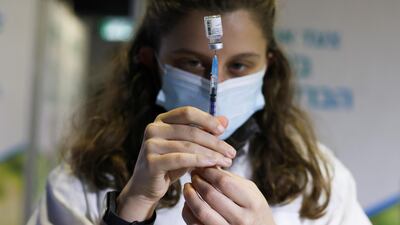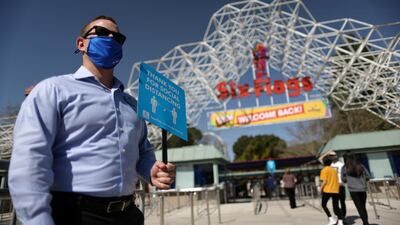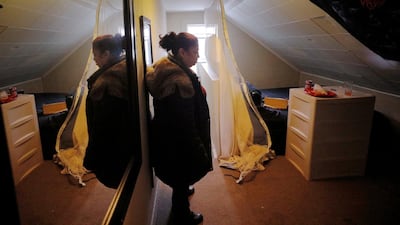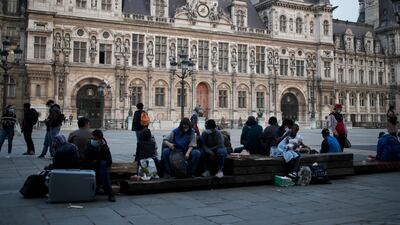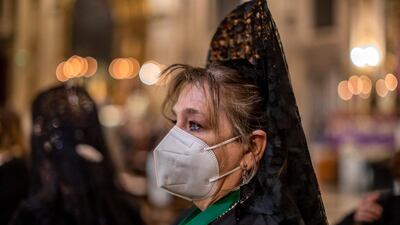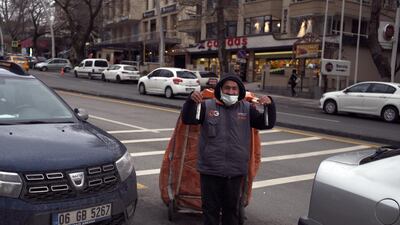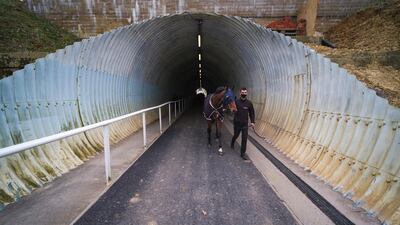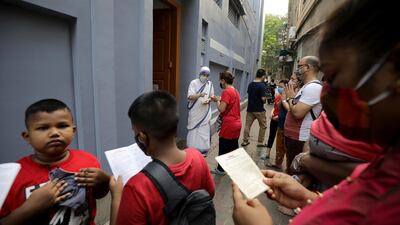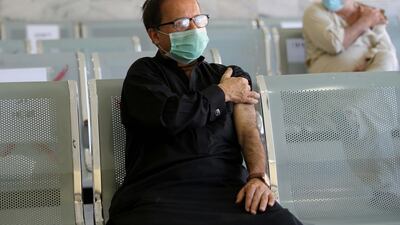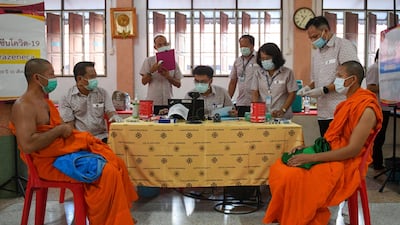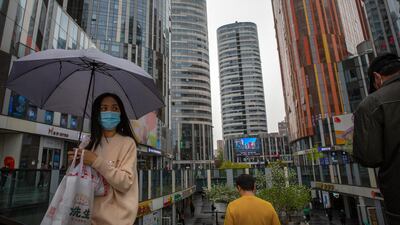Israel could expand its coronavirus vaccination drive to children as young as 12 within weeks, after new research by drugmaker Pfizer found the vaccine worked safely for the age group.
More than half of Israel's population is fully inoculated against Covid-19, enabling the country to largely reopen its economy and education system.
The possibility of expanding immunisations to under-16s was raised by a Pfizer study published on Wednesday, which said its vaccine showed 100 per cent efficacy among 12-to-15-year-olds.
The results of the US study will be submitted to the country’s Food and Drug Administration (FDA) and other international regulators “in the coming weeks”, Pfizer said.
The findings were hailed as “terrific news” by Israel’s health minister, Yuri Edelstein, who said that more vaccines should be procured so that authorities can begin administering doses immediately on FDA approval.
Israel started vaccinating teenagers aged 16 to 18 in late January, a move the government said was aimed at allowing them to take school exams.
At the time Israel's population of nine million was living through a third nationwide lockdown imposed after a surge in coronavirus cases. The vaccination drive is credited for a significant fall in infections in recent weeks, paving the way for most schools to reopen.
Galia Barkai, head of the paediatric infectious diseases unit at Sheba Medical Centre, Israel’s largest hospital, said she was “very happy” that younger children would soon be vaccinated.
“I didn’t expect the results would be different, because the biology and immunology of children 12 to 16 is not different to those 16 and over. I was quite sure it would be safe and effective,” she said of the Pfizer research.
While the vaccination programme has been generally off-limits to those under 16, Dr Barkai said a few hundred younger children received doses because they have illnesses that make them particularly vulnerable to severe Covid-19.
"We've seen already that the children suffer from about the same adverse events [as adults], very lightly affected, like a fever, low-grade fever pain" after being vaccinated, Dr Barkai told The National.
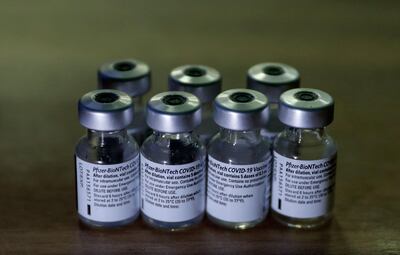
Although most children are back in the classroom, restrictions mean some lessons continue online. Schools are still at risk of being shut because of localised coronavirus outbreaks.
Vaccinating children could allow high schools to return to normal, although Israeli authorities might face challenges in convincing parents to approve the shots.
“I’m sure it would be more complicated than for adults, because for adults it is easy to see how Covid is a devastating disease for old people. But as far as children [are concerned], they are affected less severely,” Dr Barkai said.
“Parents are always more afraid of anything that should be given to their kids than to themselves,” she said.
Pfizer last week started a coronavirus vaccine trial involving children aged 5 to 11. The study is expected next week to be expanded to children as young as two and, at a later stage, babies from six months.
While Israel has shown resounding success in vaccinating its citizens, the country faces criticism from rights groups for failing to expand its immunisation programme to about five million Palestinians living in Gaza and the occupied West Bank.
Last month Israel began vaccinating more than 100,000 Palestinians with permits to work in the country. An additional 60,000 West Bank residents and nearly 24,000 Gazans have received a vaccine, the Palestinian health ministry said on Thursday.
